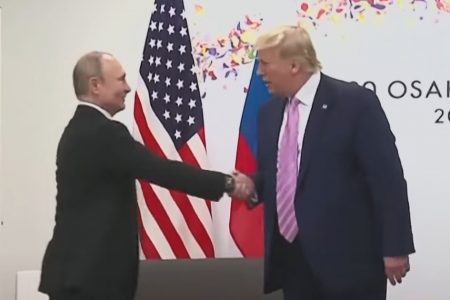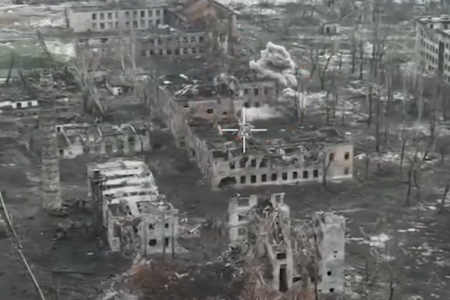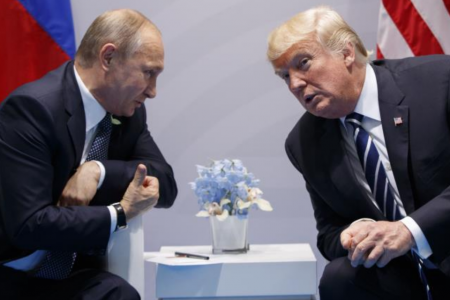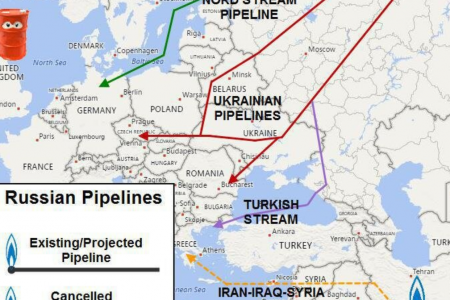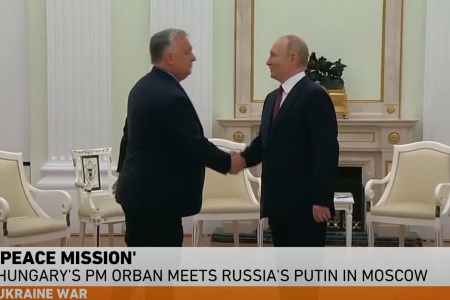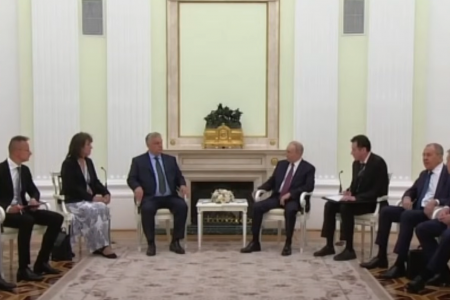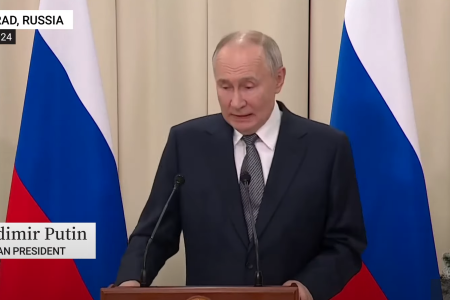
Several observers of politics and human rights comment to the BBC on how international, including the European Union and the US, has more effective sanctions on human rights violations in Vietnam.
The Magnitsky Act on human rights sanctions can become an effective tool and means for internationalization, including the EU and the US, when it was enacted and applied to be able to better monitor and sanction alleged human rights violations in Vietnam, some Vietnamese political and human rights observers told BBC News Vietnamese.
First of all, from Europe, a group of 64 members of the European Parliament recently signed a joint letter on September 25, 2020, to the European Commission and the European Parliament calling on the EU to take specifical measures to force Vietnam to respect human rights.
Meanwhile, it was reported that the leader of Germany, the leading country in the EU and holding the rotating presidency of this bloc, supported the European Union’s creation and enactment of a human rights sanctions law which might be named the European Magnitsky Act, a law that many Western nations already have, to sanction, monitor, and support the human rights situation in many countries around the world, including Asia.
On September 30, 2020, a number of observers on human rights in Vietnam made their comments on these developments in relation to the human rights situation in Vietnam.
“At this point, I agree too much,” freelance journalist Pham Doan Trang, a human rights activist from Vietnam, told the BBC on September 30, 2020.
“Until now, not many countries and territories have enacted the Magnitsky Law and used it to punish human rights violators in other countries, only the US, Canada, the United Kingdom, Gibraltar, Jersey, and the three Baltic states: Estonia, Latvia and Lithuania.”
“Of these countries, the US, Canada and the UK are big. The rest are small, having little influence on the international arena and their sanctions have only a very limited impact.”
“Canada tends to follow its US ally, and the UK has not yet built up procedures for filing denunciations of human rights violations. After all, only the US is the most active country in the process of using the Magnitsky Act to punish human rights abuses and corruption abroad.”
“So, if there can be more countries, such as Australia and the European Union enact the Magnitsky Act, then human rights abuses in authoritarian countries like Vietnam will face the possibility of punished higher, in more places. That’s very good.”
What to expect about Dong Tam Report?
Recently, a report on the Dong Tam case and first-instance hearing in Vietnam, written in Vietnamese and English, has just been released by a group of activists, when asked what the main reason is, the message and the goals of the subject matter of this report and what the authors expect about the impact of the report, journalist Pham Doan Trang, one of the two co-authors, told the BBC:
“Will Nguyen and I have several main goals in making this report: One is to archive, record a tragic event in contemporary Vietnam. Second, to make as many people as possible know about the attack in Dong Tam and legal and political issues in the proceedings in Vietnam, serious human rights violations in Vietnam today, and Dong Tam is a typical case. Third, if possible , providing a tool for domestic and international individuals and organizations to make use of to advocate for the Dong Tam issue, for the victims of the Dong Tam case.”
“The message of the brief report is: Dong Tam is a serious case, but not a serious case from the government’s point of view, but in the sense that this is a case of the state killing people, attacking civilian targets in an organized and scale manner.”
“We do not have much expectation on the impact of this report or on the behavior of the Vietnamese authorities in the case. We write because we feel the need to write, not because we think the report will change the behavior of the Vietnamese authorities and the Ministry of Public Security, and overturn of the sentencing of the victims.”
“We also cannot confirm whom the report will specifically impact, and what are the extent and results. It can only be said that we hope it will be read by many Vietnamese people in the country as well as abroad, and helping them to understand the Dong Tam case fully and quickly.”
EU and America are not joking
Concerning Dong Tam’s trial, on September 14 from Brussels, the European Union issued a statement expressing concerns about the fairness and procedural practices of the first-instance hearing and the proposal not to apply the death sentences declared by the Hanoi court.
Concerning Germany’s proposal that the EU should have a Magnisky human rights law that applies not only to Europe but also to the rest of the world, including Asia and countries that are or want to partnerships with the European Union, sharing the bloc’s standards, a comment from Berlin, Germany commented to the BBC:
“I agree that the EU should have a Magnitsky law in place in Europe and anywhere in the world to prevent cruel people from achieving the rights of themselves and its group, if not, it would be very bad,” writer Vo Thi Hao, dissident writer, told a Thursday Round Table discussion on October 1.
“And I think that 64 members of the European Parliament have done that and they are also interested in stopping the Free Trade Agreement (EVFTA) that the EU has signed with Vietnam and ratified it if Vietnam does not implement the commitment to human rights, as well as anything else.”
“Now they warn that and if Vietnam continues, not paying attention, then of course they will take stronger steps, because here Europe is not joking and I think America is not joking too.”
From the end of December 2016, then US President Barack Obama signed a law to expand sanctions against individuals violating human rights around the world, including Vietnam.
In this US law, there is a Magnitsky Global Human Rights Responsibility Act (referred to as the Magnitsky Act), which provides sanctions against individuals whom the United States considers to violate human rights around the world.
Accordingly, individuals and officials in countries, including Vietnam, if listed as human rights violators, may be restricted by the US from entry or have freezed property.
The Magnitsky Act also applies to individuals convicted of corruption, embezzlement and a number of other crimes.
The US legal documents say: “The President can impose sanctions … on any individual whom the President determines, based on reliable evidence, is responsible for the behavior of illegal killing, torture or other internationally recognized violations of human rights aimed at individuals in any country.”
This law became effective 6 years ago, but only the US President has the right to end sanctions against a certain individual on condition that it must be reported to Congress.
The law that originally applied to Russia, later expanded to countries around the world, means that individuals who commit human rights violations or corruption, for example in Vietnam, can now be punished without affecting the relations between the two governments.
Benefits if respect for human rights?
At the Thursday roundtable discussion on October 1, 2020, legal policy researcher, Associate Professor Hoang Ngoc Giao from the Institute of Policy, Law and Development commented to the BBC on Vietnam’s interests if care about and respect human rights issues:
“From the perspective of the Vietnamese state, I think that if we really want to develop, democracy and human rights are the driving force to gather the people and unite the people for development.”
“And if we do not see that, it leaves a very dangerous consequence that there is the ability for people to increasingly confront the government, and the Dong Tam case is an example that the people have been exposed to push away from authority.”
On the issue of Western sanctions, regarding the Magnitsky Act of the United States, which can be applied to countries that are considered human rights violations, Mr. Hoang Ngoc Giao commented:
“Unlike in the past that just a political pressure, an economic pressure, or maybe some reduction in economic incentives for a country that violates human rights, we now know that there is the Magnitsky Act.
“The Magnitsky Act that America passed is extremely wonderful and wonderful in that it is not targeting institutions, not government, they are targeting individuals who violate human rights.”
“But we know that those individuals who seriously violate human rights are in the police force, in the decision-making force of the executive and those people in Vietnam as well as in China, many of them have money, property, and children in America.”
“Therefore, if Magnitsky’s law is applied, it will have a great effect and it has a very good deterrent to abuse and human rights violations.”
“And I believe that if the Magnitsky Act is applied, then no judge would dare to stand up and try the Dong Tam case like the last trial.”
“Because you will be sanctioned, this is very important and very real and I still ask why the US has not applied this law to Vietnam, then it comes back to the question of geopolitics, regional security and human rights issues, which one is their priority.”
“Procedure requesting action”
Regarding the recent actions from the EU on human rights with Vietnam, an analyst and observer of Vietnamese politics from Hanoi on the occasion commented:
“The fact that 64 MPs of the European parliament made a request letter to Mr. Josep Borrell Fontelles – Senior Representative for Foreign Affairs and Security Policy / Vice President of the European Commission, co-sent to Mr. David Sassoli – President of the European Parliament and many other EU officials and requested three points related to the Vietnamese government’s arrest of freelance journalist Pham Chi Dung, Dong Tam case and Vietnam’s human rights record, are three a procedural request for the European Parliament to respond to them and take action,” Dr. Ha Hoang Hop, guest senior researcher at the Iseas-Singapore Institute, told the BBC on September 30.
“The first action is that the European Parliament needs to explain its position, second is a request to establish an observing body for the implementation of human rights regulations that follow the implementation of the EU-Vietnam Trade Agreement (EVFTA).”
“This is a procedural step but it is certain that in the near future the European Parliament will have to respond by action according to the requirements of these 64 MPs.”
“In my opinion this is a very strong move, but for the first time such a strong move was made for the arrest of people by the Vietnamese government, for the case of Pham Chi Dung and for the events that happened around the Dong Tam case.”
“By the way, I comment on the question related to the possibility of issuing a Resolution, to have a resolution, the congressmen must have a procedure, which 64 MPs have already done, the public will wait for one. We will see how the Council of the European Parliament will act.
“It is also possible that they will issue a Resolution and a resolution which is the highest step for the European Parliament, but we should remember that the European Parliament has a right that is the right to impose related sanctions to human rights violations.”
“Along with the European Parliament, the European Union has that same authority and as we know the European Union recently, on September 27, 2020, reiterating what I think is very important to reassert the right to issue and implement sanctions for human rights violations.”
In a separate recent development, on September 30, a senior UN official, Ms. Ilze Brands Kehris, Assistant Secretary General of the United Nations for Human Rights, presented a report on “threats and reprisals” this year at the 45th session of the Human Rights Council of this organization.
In particular, Ms. Kehris quoted the report saying that Vietnam is among the countries “with worrying and persistent violations for many years.”
At a session streamed by the UN from Geneva, Switzerland, the official said:
“Many UN reporters have brought up allegations of individuals in the repressed environment that lasted for many years, included in this year’s report, for example in Bahrain, Burundi, China, Cuba, Egypt, India, Iran, Myanmar, Saudi Arabia, Uzbekistan and Vietnam, and others.”
“In the face of these many worrying situations, we must work together to preserve and expand the spaces of UN interaction and intervention,” recommended the Assistant Secretary-General of the United Nations for human rights.
For their part, up to now, the state and governments at all levels of Vietnam have always declared that this country always complies with laws, conventions, and agreements signed with international and regional human rights such as respecting the human rights of citizens.
Vietnam has no political prisoners and prisoners of conscience, but only those who are legally punished by the government for violating the law and criminal law, the government’s views are clearly stated in its statements and official reporting, as well as through the media and official state media.
Thoibao.de (Translated)



